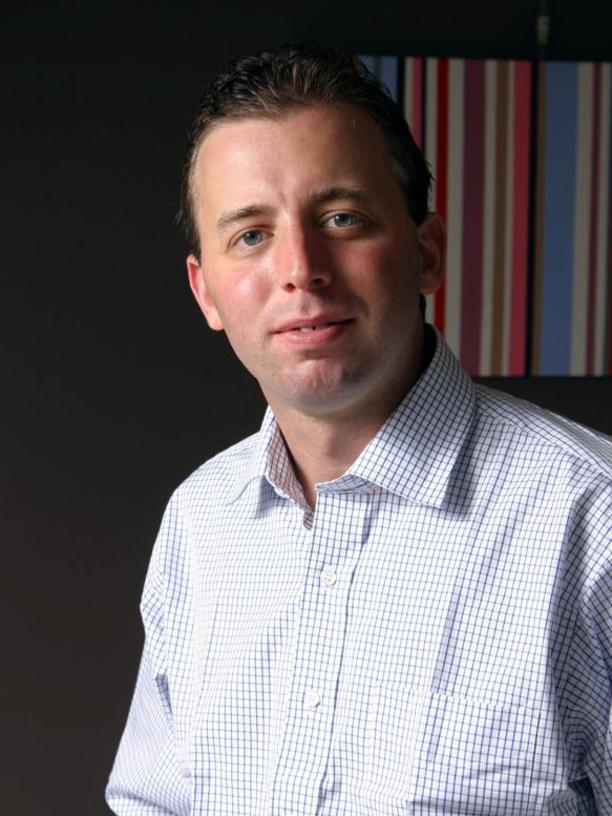The gospel according to Paul Barry
TOO much press coverage (an “avalanche”, in Paul Barry’s words) of terror attacks, as well as the wrong “tone”, is now dangerous, apparently.

Opinion
Don't miss out on the headlines from Opinion. Followed categories will be added to My News.
ALL Australians of goodwill and reasonable sense would agree with Prime Minister Malcolm Turnbull’s clear and repeated statement that ordinary Muslims should not be held responsible for the murder of NSW police accountant Curtis Cheng by a radical teen bent on jihad.
Yet in the week-and-a-half since the Parramatta terror attack, many Australians, particularly those in politics and the media, have been far less eager to extend the same courtesy to their fellow countrymen.
A low point of this self-flagellation occurred during this week’s episode of ABC’s Media Watch, whose host Paul Barry (pictured) regularly sets himself up as chief censor, deciding retrospectively what Australians did and didn’t deserve to hear about in the previous week.
Reflecting on the tone of the coverage of the Parramatta terror attack, Barry suggested it was nothing so nuanced as radical Islamists or violent interpretations of holy writ or cowardly zealots who use teenagers to do their dirty work who were responsible, but rather, the press and its damned freedoms.
Too much press coverage (an “avalanche”, in Barry’s words) of terror attacks, as well as the wrong “tone”, is now dangerous, apparently.
The “challenge”, Barry concluded, is “to find a balance between telling the truth and not fanning the flames of fear”.
To put it another way, according to Barry and his ilk, Australians are a bunch of bigots who on the slightest provocation will start doing doughnuts in the car park of their nearest mosque in a ute loaded up with a trayload full of pigs’ heads and a Pauline Hanson flag flying from the aerial while leaning on an aftermarket novelty horn that blares “Dixie”.
Nor has the government discouraged this impulse to self-censor, giving the whole phenomenon more than a bit of the whiff of the Politburo.

Obviously the politics of this are complex, and clearly in the days after the attack there was a serious behind the scenes effort to give clear air to Muslim leaders to make the entirely sensible proposition that if one is unhappy with Australia’s democratic freedoms one is welcome to try one’s luck elsewhere.
But the act is wearing a bit thin. Thus Australians were treated to the unedifying spectacle this week of MP Fiona Scott suggesting that Cheng’s murder was “one little incident” in an otherwise unblemished 100-year history of Islam in Australia. (Scott later backtracked and claimed she was not referring to what happened in Parramatta but rather the Battle of Broken Hill in 1915, which involved two Muslims answering the call of the Ottoman Sultan to jihad and gunning down four New Year’s Day picnickers, a revision which might not help her case as much as she thinks it does.)
The problem with patronising the supposedly knuckle-dragging masses while maintaining a “nothing to see here” attitude when it comes to radical Islam is that as well-intentioned as it may be it widens, rather than narrows, the space in which tensions can arise in the community.
While no one is pretending that Australia’s Muslim communities have integrated without drama — oh wait, see above — the fact does remain that our country has been spared many of the troubles of other nations, particularly those in Europe.
This is due to a variety of factors, not the least of which include robust border controls. A further part of the equation would have to be our ability to confront problems, even if not always in the most elegant of fashions, head on in the public square.
European nations have been far less successful in integrating their Muslim populations while at the same time trying to squelch discussion of the issue.
Such policies encourage bad actors in Muslim communities to take advantage of official silences, becoming more militant and attacking the pillars of the free societies which have taken them in.
Such a situation then leaves non-Muslims with the choice of staying silent or joining increasingly strident groups in reaction.
If our multiculturalism is as robust as we say it is, it should also be strong enough to stand up to criticism.
James Morrow is a writer and consultant.



